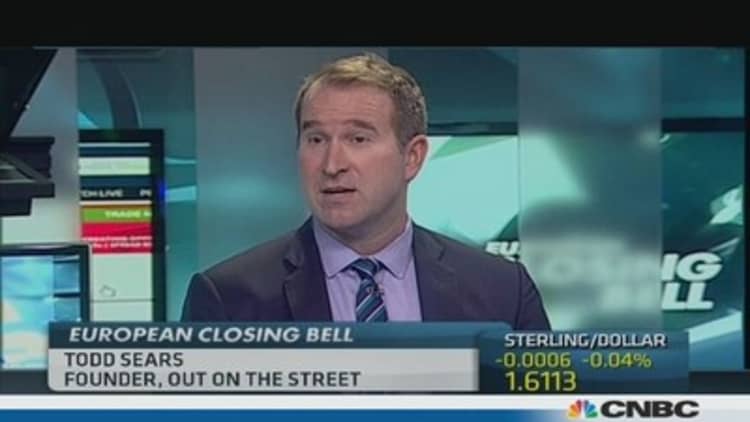Jared Reynolds never planned to become a professional bass fisherman like his father, but as fate would have it, he built a career around the sport, anyway.
Reynolds, a certified financial planner and co-founder of Wilkerson and Reynolds Wealth Management, is part of a small population of financial advisors who focus their practices on a particular client niche. In Reynolds' case, it's bass fishermen.
While establishing niches like this are often a labor of love, advisors who have gone that route say there are abundant advantages for both clients and advisors.
In 2003, Reynolds got the idea to target bass fisherman. His dad was telling him about a fisherman friend who'd had a bad experience with a financial advisor.
"It was like a brick hit me," Reynolds said.
He started traveling to industry events and quickly realized that this was not only an untapped niche but also a community in which his father knew everyone.
"It's a very tight-knit world, and I realized that I could potentially build this out," he said.
Read MoreAdvisors have knack for niches
He began with a single client. Within a few years the networking began to pay off.
"It took a while to build my reputation … but by the third year, people really knew me," Reynolds said.
His client roster has grown considerably and even includes some high-profile catches like Roland Martin, the so-called Babe Ruth of fishing.
A big draw for Reynolds' clients is his understanding of their needs and lifestyle.
For example, winning a fishing tournament could mean a large influx of cash or a big prize, so knowing about tax treatment is key. Prize purses at these competitions are often $1 million.
And cash flow needs have to be considered, because it might take years for another big win, so money can't be tied up for long periods of time.
Read MoreMuslim advisors invest Islamic way
As for lifestyle, Reynolds added, a lot of these guys live off their laptops on the road, so they need mobile access to everything. For Reynolds the experience has been highly satisfying, as he's found a way to be outdoors while making money in a different way.
It's also more financially rewarding than some might think.

"The whole bass fishing world used to be made up of weekend warriors hoping to hit it big," he said, explaining that in recent years, it "has grown leaps and bounds. … There's a lot more money coming in."
Like Reynolds, most niche advisors pursue specialties with which they are familiar. Ronsey Chawla, a wealth manager at Per Stirling Capital Management, pursued three: physicians, management consultants and those in technology.
"I wanted to focus on these specific groups because I have shared experiences with them," he said. "When I'm having a conversation with [a client], I can understand their challenges and the landscape in which they operate."
Prior to becoming a financial advisor, Chawla was a management consultant for 15 years, often focusing on clients in life sciences and technology space. And because his wife is a physician, he became well versed in the types of financial challenges that can arise in that field.
Unique challenges
Chawla said the financial challenges these groups face often differ from those of the general population.
For example, debt management is a common issue for new physicians. Although they may have high-income potential, doctors often take on considerable debt to get there. Technology and management consultants have challenges of their own.
While it's only been two years since Chawla launched his practice, he said the nature of having this type of niche has made getting referrals easier.
Read MoreAdvisors find niche practice lucrative
"It's all about meeting people and networking," he said. "My forte isn't cold-calling or knocking on doors. By virtue of being with the folks that I've dealt with, it's easier to meet people and share my background and the details of my practice."
The greatest perk of his job: It doesn't feel like work.
"The networking I do is something I would do anyway," Chawla said. "The personal and professional sides begin to blur together."
Women in transition
When certified financial planner Vielka Burey started her own practice, Miami, Florida-based Women's Financial Advisory Group, she also wanted to work with a client base whose challenges she understood. For her, that group was women undergoing transition, such as those who are newly divorced or widowed, have recently retired or have inherited money.
Having previously worked in private banking and wealth management for various companies, Burey often saw a void when it came to the financial knowledge and preparedness of female clients. But when she tried to incorporate the idea, it wasn't well received.
"Companies tend not to narrow their niche into something, because they want to get everybody," she said.
So she decided to go out on her own. And while it's only been 18 months, Burey said the response has been positive.
"I am trusted now, and women are embracing this," she said, adding that new clients have come via referrals, her speaking engagements and her participation in numerous women's organizations.
This [business] is my baby. I created it from scratch, and it has been a labor of love.Vielka Bureyfounder of Women's Financial Advisory Group
The bulk of Burey's clients are divorcees, a group with whom she has particular expertise as a certified divorce financial analyst. CDFAs are trained to provide assistance on divorce-related financial matters, such as settlement options or the tax implications of dividing property.
While this area of expertise adds value for her clients, the area where she often has the greatest impact is in simply teaching clients about general financial matters.
"When I work with women, I find they need to be taught and empowered to learn, not just to become a millionaire," she said. She added that many women she meets don't even know how a mortgage works. And for those who come into a lot of money, they usually don't know how to manage it.
While advisors may choose to purse a particular niche for a host of reasons, for most the common thread is the desire to immerse themselves in an area that is near and dear.
"This [business] is my baby," Burey said. "I created it from scratch, and it has been a labor of love."
—By Jennifer Woods, special to CNBC.com




